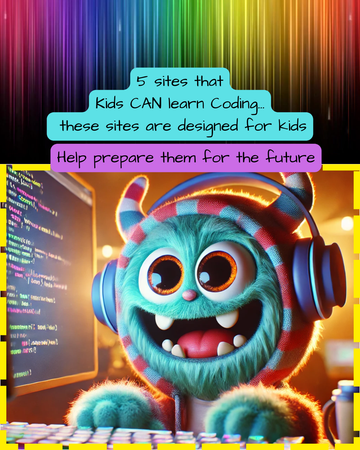Neurodivergent vs. Neurotypical: Understanding the Invisible Differences
In the ongoing conversation about neurodivergence, one of the most misunderstood aspects is how neurodivergent individuals are compared to their neurotypical counterparts. Neurotypical refers to individuals whose neurological development and functioning align with societal norms and expectations. For neurodivergent individuals, the differences may not always be visible, leading to assumptions that they should function and behave like their neurotypical peers. These assumptions often create challenges, frustrations, and misunderstandings for both neurodivergent individuals and those around them.
"But He/She Looks So Normal": The Mask of Neurodivergence
One of the most common misconceptions about neurodivergent individuals is that they appear “normal.” For many, their struggles are invisible, leading to the assumption that they should be able to control their behavior or responses in the same way neurotypical individuals can. This misunderstanding often results in harmful judgments, such as labeling someone as lazy, unmotivated, or disruptive when they struggle to meet expectations. Imagine being frozen on the inside but considered lazy. Imagine being in a state of utter panic, and called unmotivated. Imagine feeling as if ants were crawling all over your body and you just had to move, and called disruptive. This happens to students every day in schools.
Neurodivergent individuals often mask their challenges—struggle to suppress their natural responses or imitate neurotypical behaviors to fit societal norms. This masking can be exhausting and may lead to burnout, anxiety, or depression. The assumption that they don’t face real difficulties because their struggles aren’t outwardly obvious only deepens the divide in understanding.

Why "Just Try Harder" Doesn't Work
For neurotypical individuals, systems of rewards and consequences often work effectively. When motivated by positive reinforcement or deterred by negative consequences, they can adapt their behavior accordingly. However, this approach frequently fails for neurodivergent individuals because their challenges are rooted in nervous system responses that aren’t entirely within their control.
For example:
- ADHD: A person with ADHD might struggle with impulsivity or staying focused, not because they lack willpower, but because their brain's executive functioning systems operate differently.
- Autism/PDA: A meltdown or sensory overload isn’t a behavioral choice—it’s a nervous system reaction to overwhelming stimuli.
- Anxiety Disorders: Avoidance behaviors may stem from a fight-or-flight response rather than a conscious decision.
Expecting neurodivergent individuals to "control" these responses through willpower alone is akin to asking someone with a broken leg to run a marathon. The issues are physiological and neurological, not a matter of personal discipline. Couple that with the knowledge that many have no idea what is happening to them and even if they do they have had little, if any guidance on how to find ways to deal with these responses.
The Limitations of Rewards and Consequences
Traditional behavior management systems, such as token economies or punishment for undesired behavior, often assume that individuals will just know how to control their actions with the right incentives. While these systems may work for neurotypical individuals, they often fail to address the root causes of neurodivergent behaviors.
- Mismatch in Motivation: Neurodivergent individuals may not respond to rewards or consequences in expected ways because their brain processes motivation and reinforcement differently.
- Increased Stress: Punitive measures often amplify anxiety, frustration, and emotional dysregulation, leading to more negative outcomes rather than improvement. Similarly, rewards intended to motivate can sometimes intensify anxiety. Imagine feeling unable to control your emotions or reactions, and now being rewarded creates an expectation to maintain that standard indefinitely. This prospect can feel overwhelming, even insurmountable. As a result, recognition becomes a source of internal conflict—you desire it as much as you dread it. This duality creates a mental and emotional struggle, where the pressure to achieve undermines any sense of accomplishment or motivation.
- Unintended Misinterpretation: Rewards might feel patronizing or insufficient if the underlying struggle isn’t addressed, and consequences may feel unfair if the behavior is not controllable to a large extent. If the root cause isn't addressed, rewards may seem condescending or inadequate. Similarly, consequences can feel unjust if the behavior is beyond one's control.
What Neurodivergent Individuals Need Instead
- Understanding and Accommodation
- Neurodivergent individuals benefit from environments that recognize and accommodate their unique needs. This may include sensory-friendly spaces, flexible schedules, or tools like noise-canceling headphones and visual timers.
- Compassion Over Compliance
- Instead of expecting immediate compliance with societal norms, understanding the root cause of behaviors allows for more effective support. For example, acknowledging that a meltdown stems from overstimulation rather than defiance fosters empathy and solutions.
- Skill-Building and Coping Strategies
- Helping neurodivergent individuals build skills to navigate challenges—like mindfulness techniques for emotional regulation or organizational tools for time management—empowers them without expecting unrealistic self-control.
- Regulation Over Punishment
- Supporting the nervous system is key. Activities that promote regulation, such as deep breathing, movement breaks, or access to calming sensory inputs, can help neurodivergent individuals regain balance.
Moving Beyond Assumptions
The contrast between neurodivergent and neurotypical individuals underscores the necessity for increased awareness and education regarding the diverse manifestations of neurological differences. While neurotypical behavior generally conforms to societal norms, neurodivergent behavior can appear unpredictable or inconsistent. This is because neurodivergent behavior is often driven by internal nervous system responses.
Understanding the Differences: Neurodivergent vs. Neurotypical
It’s essential to understand how neurological differences influence behavior. While neurotypical individuals generally act in ways that align with societal norms, neurodivergent individuals may display behaviors that appear inconsistent or unpredictable. These behaviors are often driven by internal nervous system responses rather than conscious choices. Recognizing this distinction is crucial to fostering acceptance and inclusion for neurodivergent individuals.
By shifting our focus from “fixing” neurodivergent individuals to building environments and systems that accommodate their natural ways of being, we move toward genuine inclusion. This approach allows us to move past superficial comparisons and embrace the richness and diversity that neurodivergence brings to our communities.
Final Thoughts
Understanding that neurodivergent behaviors are rooted in neurological differences rather than personal choice fosters empathy and support, replacing frustration and judgment. Recognizing the unique challenges and strengths of every individual creates a more inclusive environment where everyone can thrive, regardless of their brain's wiring. From a special education teacher's perspective, this understanding is crucial and can positively impact a student's life.






